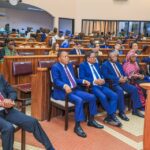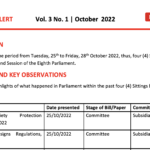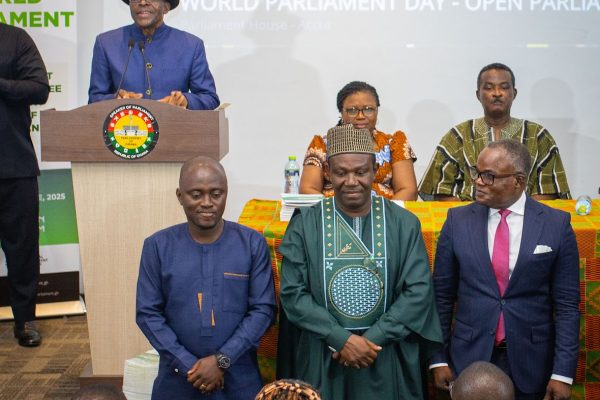The Issue of Investing in the Francophonie: the cry of the First Vice-President of the Parliament of Benin
The First Vice-President of the National Assembly of Benin, Robert GBIAN, has said that too often the English language is clearly assimilated to the economy, and the French language to that of culture. This dichotomy, if nothing is done, will ultimately be fatal for the Francophonie, which would gain more by investing in the economic sector in a more structured and offensive way. ‘If it does not want to be assimilated tomorrow to what Latin civilization is today, that is to say a learned culture to which we continue to refer, but which remains a dead culture,” defended the representative of the President of the National Assembly.
These statements were held during a two-day seminar on capacity building jointly organized by the National Assembly and the Assemblée Parlementaire de la Francophonie (APF) for the members and executives of the National Assembly of Benin. Speaking the theme “The Francophonie in the face of other regional spaces and global economic change”, Gbian, called for the need to present the comparative advantages of the Francophone economic space and to encourage parliamentarians to harmonize legislative frameworks in order to make the business climate and Francophone innovations more stimulating by developing common frameworks.
Still on this subject, the First Vice President stressed the importance of making parliamentarians aware of the relationship between linguistic and economic francophonie in order to consider the French language as a vehicle for economic and social development.
In his view, this will certainly lead to the establishment of an institutional framework conducive to entrepreneurship and innovation for sustainable and shared growth.
Further on, Gbian, estimated that in speaking of the economic weight of the Francophonie in the world economy, it should be noted that the Francophonie has 88 states and 1.2 billion inhabitants, including 300 million francophones.
This assumes that the International Organization of the Francophonie (OIF) represents about 15% of the world’s population, 16% of Gross National Income (GNI) and 20% of world merchandise trade.
Mireille EZA, Director of the APF’s Digital Program, stressed that the Francophonie is a space full of potential and that it is important to address the challenges related to language, cultural diversity and, above all, the promotion of the economy.
She explained that this is not the first time that the APF has organized a capacity-building seminar for MPs and parliamentary officials at the request of the National Assembly.
The two-day seminar addressed several sub-themes on the economic francophonie economic opportunities, Comparative advantage means and mechanisms to stimulate cooperation between French-speaking countries and the modality in French-speaking countries and the challenge of development.
In his closing speech, the 1st Vice-President of the Benin section of the APF, Assan SÉIBOU reviewed the recommendations of deputies to better understand and optimize the benefits of the economic francophonie.
He said he was optimistic that MPs and other participants will discuss and exchange more on a number of issues, namely the existence or not of an economic francophonie, the possibilities of the economic francophonie, the means and mechanisms to be put in place for enhance cooperation between Francophones.
Story By: Florence D.Y. Glolu





